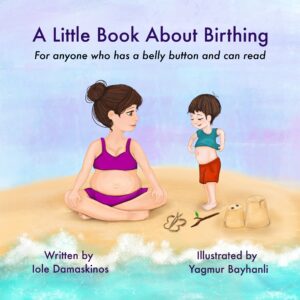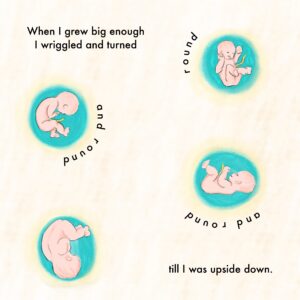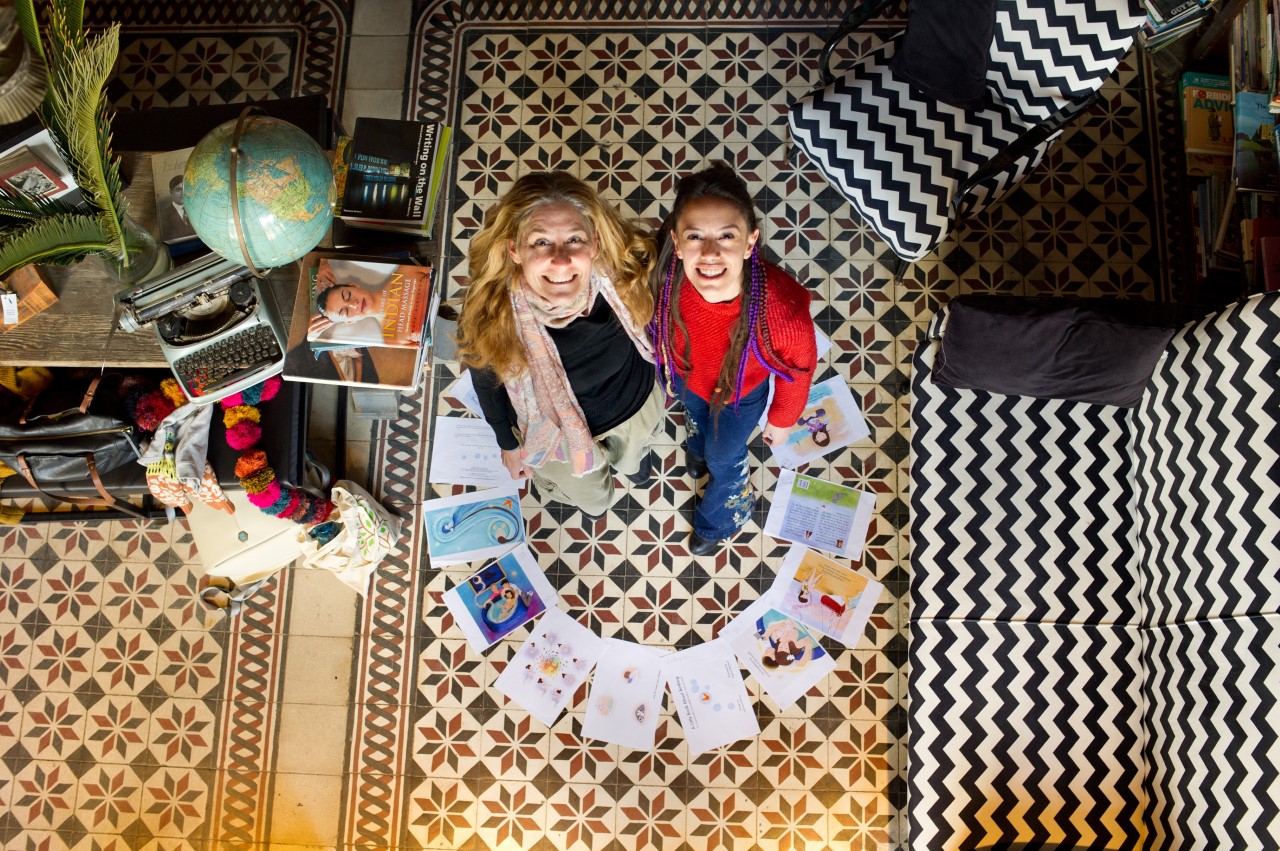A small new book aims to allow children to understand birth. Alix Norman speaks to one of its creators
“From a very young age,” says Iole Damaskinos, “women are taught to outsource their bodies.”
It’s a bold statement. But then Iole, a Stanford-educated psychologist and expert in women’s issues, has been quietly working for most of her 50 years to change perceptions surrounding women’s wellbeing. A psychologist by training, as well as an authority on mindfulness, a specialist in menstrual cycle awareness, and a practising yoga teacher, Iole’s experience is drawn from the countless cultures in which she’s lived: Saudi Arabia, South Africa, Belgium, the States, and Hungary to name a few.
Now, back in Cyprus for the last eight years, half-Dutch, half-Cypriot Iole is helping to change the island’s narrative on women’s health: “The narrative that tells girls to distrust and fear their own bodies, instead of developing a sense of wonderment and empowerment.
“There’s such a reductionist tendency in our medical system here,” she adds. “We’re barrelling down the rails of a compartmentalised system that’s taken too much control; taught us to fear our bodies. When instead, we should perhaps be taking on a more holistic perspective; just look at the studies released in the last decade that prove physical and mental wellbeing are interrelated!”
While Iole is also an advocate for “accepting the cyclical nature of women’s bodies,” and “changing the story on over-medication of women”, the issue on which she feels most strongly is birth. And to this end, she’s just launched a delightful children’s book: A Little Book About Birthing.
Although just 24 pages in length, this diminutive read will, Iole hopes, have a big impact. Featuring gorgeous artwork by Turkish Cypriot illustrator Yagmur Bayhanli, it aims “to foster a sense of wonder about the birthing process.

As a mum of three, all of whom were born naturally, Iole is confronting the local penchant for scheduled caesarean sections. But with Book About Birthing, she’s also challenging “the fear that goes hand-in-hand with giving birth in Cyprus…
“When I first moved back to Cyprus,” she reveals, “I was shocked that birth was no longer accepted as normal and natural. I had countless conversations with friends who were so sad about their birthing experiences – about how afraid they had been, and their lack of understanding of both process and options.
“Many told me they felt no sense of control whatsoever: they were instructed to blindly obey their doctor’s orders, while their own concerns were brushed aside. But it’s neither necessary nor human for women to be subjected to terror and distrust of their own bodies,” she adds. “Birth is a natural process – it doesn’t have to be a cold, clinical, traumatic experience!”
This attitude of dread – both of giving birth and of one’s own body – is instilled from a young age, Iole suggests. Especially in girls, who are often taught that such natural processes are a burden. “I recall,” she adds, “seeing a woman giving birth on a Cypriot soap opera; I was just a child at the time, and the portrayal of a woman in screaming agony really shook me. But my Mum took me aside and explained that birth was not like that; that women’s bodies are eminently capable, and that 99 per cent of the time there was nothing to worry about…”
In About Birthing, Iole details natural birthing in a way that’s accessible to all ages. Complemented by the soothing illustrations, she writes of ‘The gentle drumming of mummy’s heartsong’, ‘The waters thundering out’ and ‘A tremendous heaving like a great big wave as I burst into the world and there were cries of love. Hands gathered me and placed me on the warmth. And all I knew was softness…’
“When I had my own children, all three births were natural, gentle, empowering experiences,” Iole reveals. “And I know women in Cyprus who have had natural birthing experiences in a similar way. So giving birth doesn’t have to be a traumatic, disempowering experience in which decisions and control lie firmly in the hands of the medics.”

“We live in a society where people – especially women – are utterly disconnected from their own bodies,” she suggests. “And that begins in childhood. There are numerous psychological studies proving that young girls are taught to see themselves through others’ eyes. Couple that with a medical system that’s skewed towards men – only recently have women’s bodies, their hormones, cycles, and tolerance for medication, begun to be adequately studied – and it’s not a pretty picture.”
As a yoga teacher, Iole sees this disassociation of physical, mental and emotional on a regular basis. “Students come in and get to know their bodies in a meaningful way for the very first time. And they’re then astounded by the amount of control they can exert over their own bodies when they understand them.
“But by researching our options, looking at a more holistic picture, and learning how our bodies work, we can pull back to a more realistic perspective; overcome the indoctrination that tells us we should outsource our bodies to an expert. And that begins,” she smiles, “with birth. With the understanding that the only thing we arrive with in this world is our own body…”
Currently available in English, and soon to be published in Greek and Turkish. For more information and to purchase the book visit here







Click here to change your cookie preferences